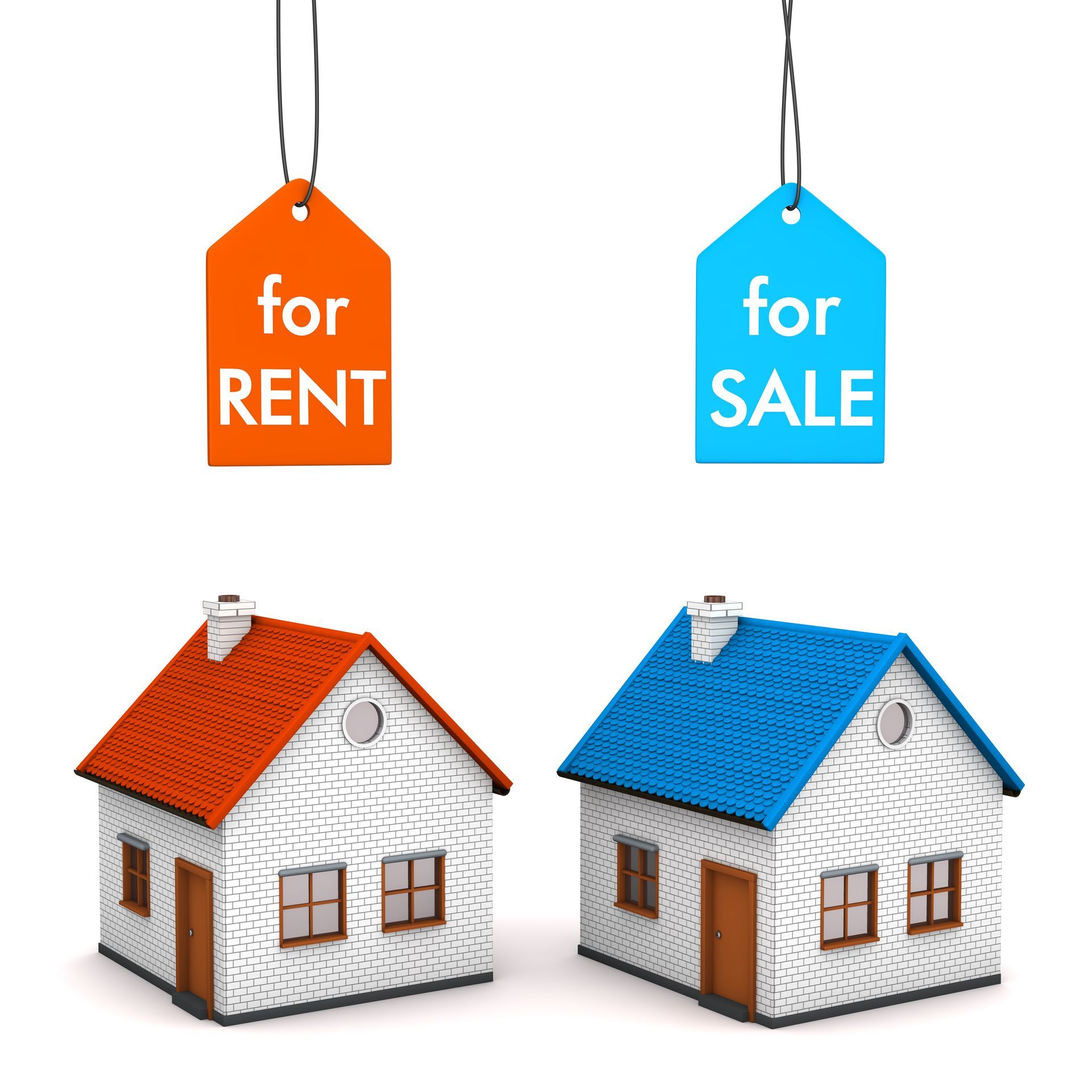Should I Rent or Should I Sell My Home
Making the Right Choice for Your Home in Today's Market

In today's real estate market, many homeowners are faced with the decision of whether to rent or sell their home, especially when downsizing or moving to another property. This decision can be particularly challenging for those who currently have a low-interest mortgage loan. While there is no one-size-fits-all answer, there are several factors to consider when weighing the pros and cons of each option.
One of the first factors to consider is the current state of the real estate market. In many areas, the market is experiencing high demand and low inventory, leading to increased home prices. In this type of market, selling your home could result in a significant profit, especially if you purchased your home when prices were lower. On the other hand, if you choose to rent out your home, you may be able to generate a steady stream of income, particularly if you can rent it out for more than your monthly mortgage payment which is the case in most areas due to the strong rental market.
Another factor to consider is your long-term financial goals. If you have the need to use the equity of your home to purchase another property or personal use or if you need the proceeds of the sale to pay off other debts, then selling your home may be the better option. However, if you are looking for a steady income stream in retirement, or before retirement, renting out your home may be more appealing, as it can provide you with a reliable source of passive income. If you are looking to maximize your return on investment with the lowest possible risk, then renting your home may also be the best option. Additionally, you'll want to consider the costs associated with each option. When selling your home, you'll need to factor in closing costs, real estate agent commissions, and any repairs or renovations needed to make your home marketable. On the other hand, when renting out your home, you'll need to consider the costs of property management, maintenance, and repairs, as well as the potential for rental vacancies.
One of the key benefits of selling your home is that it can provide you with a lump sum of cash that you can use to purchase a new property or invest in other opportunities. This can be particularly beneficial if you are looking to downsize or move to a different area. However, selling your home also means that you will no longer have a stake in the property, which means that you will not benefit from any future appreciation in its value.
On the other hand, renting out your home can provide you with a steady income stream that can help offset the costs of owning a home. Additionally, if you choose to rent out your home, you will still retain ownership of the property, which means that you will benefit from any future appreciation in its value. However, being a landlord comes with its own set of challenges, including dealing with tenants, managing repairs and maintenance, and navigating local landlord-tenant laws. Here is where a professional management company can help you. Most real estate investors hire a professional management company to take care of their rental properties and enjoy the income and a great return on the investment in most cases, without having to put any work. Also having a professional management company assures you that the home is well taken care of.
There are additional advantages if you rent your home. We talked about a stream of income, property appreciation in value which is an excellent hedge against inflation, you can also depreciate the value of the home (less the value of the land) on a yearly basis since now your home became an investment property. You need to consult with your tax advisor to discuss this and any other tax advantages you may have in your particular case.
On additional advantage is that in most cases, if you have enough equity in your home, you can set up an equity line of credit with a lender and have access to your equity any time that you need it and pay interest only on the used balance of the equity line. Depending on the use of the proceeds from the equity line of credit, the interest may be a deductible expense, you must discuss your tax adviser, tax attorney or certified public accountant regarding this and any other tax advantage you may have for owning rental properties.
Ultimately, the decision of whether to rent or sell your home will depend on your individual circumstances and financial goals. If you are looking for a long-term income stream, equity growth, home appreciation and obtaining a good return on your money with very low risk, renting out your home may be more appealing than selling it. In either case, it's important to carefully weigh the pros and cons of each option before making a decision and consult with your real estate consuktant, tax advisor, attorney or CPA.
Share this post













